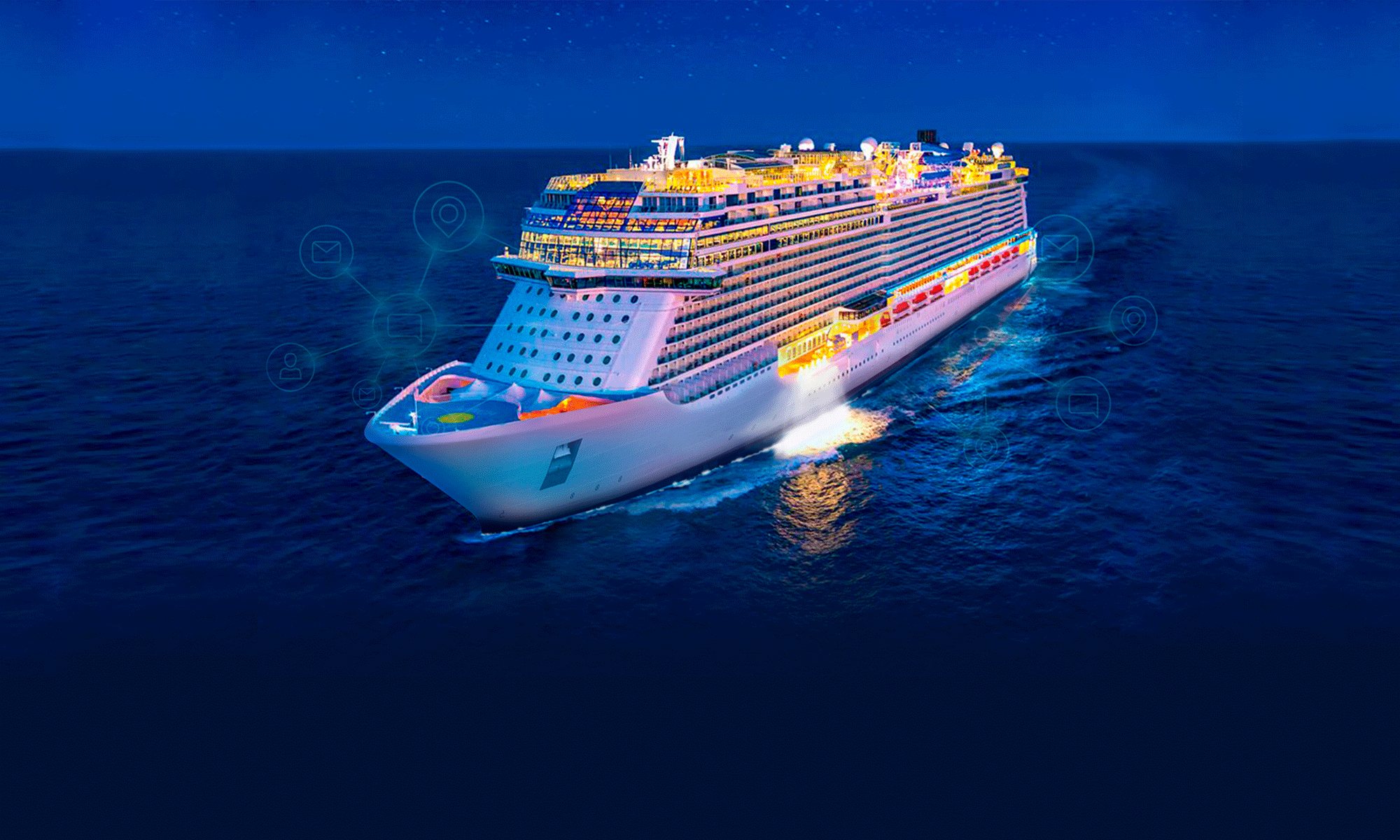In the so-called post-Covid era, tourists, travelers, and cruise ship passengers have grown accustomed to digital and ‘contactless’ services. They aren’t new to the hospitality, tourism, and travel industries but were pushed to the fore during and immediately after the pandemic. The ‘human touch’ in customer service is now viewed by many as a risk of exposure to Coronavirus, and it’s a risk that increasing numbers of cruise ship passengers were not willing to take.
Amid this backdrop, the popularity of the contactless experience skyrocketed. Face-to-face interaction will likely decline in many areas in favor of mobile app check-ins, contactless payments, virtual queuing, virtual front desk services, and biometric access. In the hospitality industry, the contactless experience has become synonymous with safety and security.
But what happens to the contactless experience when a cruise ship is out on the high seas, and internet access – and indeed intra-ship communications – is spotty at best? In general, cruise ships can suffer from all manner of communication problems while on the open ocean, especially when it comes to a strong, stable internet connection that is open to all passengers and crew.
On most cruise ships, the internet connection, internet-based communications, and telephone calls must make the journey to space to ping off an orbiting satellite, then head back to earth – a cell tower on land, to be exact – before finally being sent back to the ship. With such inefficient communication, even sending a simple text message between two people on board the ship can be costly, assuming the message goes through. With so many factors in play, there is a lot that can go wrong.
We live in an interconnected world, and cruise ship passengers expect to be able to video chat, email, share photos, and videos, make calls and send and receive text messages, even if they’re on a large moving vessel on the high seas. When maritime communication doesn’t live up to their expectations, cruise ship passengers can become anxious and feel as though they are cut off from their friends and family back on land.
Additionally, intermittent ship-wide communication can negatively impact a crucial revenue stream. Cruise lines need to communicate with their passengers wherever they are on the ship, not just in their rooms. If operators don’t have a reliable connection, the opportunity to upsell and offer in-app purchases to their guests is lost.
The netTALK Maritime Difference
It was for these reasons that Norwegian Cruise Line (NCL) approached netTALK Maritime in the hopes of solving these issues. netTALK Maritime, a telecommunications company specializing in maritime communications, presented a solution to help NCL improve their ship- and worldwide connectivity while out at sea.
netTALK Maritime’s telecommunications technology was built into NCL’s Cruise Norwegian mobile phone application, which allowed passengers of the Norwegian Bliss cruise ship to automatically connect to the ship’s onboard wifi network. With the solution in place, the ship’s guests could stay in touch with their friends and family on board, and make in-app purchases and dining reservations, and sign up for on-ship events, entertainment, and book short onshore excursions. Through the NCL app, guests on board the Bliss could pay a nominal fee to make outbound calls to both landline and mobile phones in nearly every country in the world.
As a result of the solution, NCL saw passenger communications package sales shoot up by 26 percent. The cruise lines mobile app with embedded netTALK Maritime technology was such a success that NCL decided to deploy the solution to its entire fleet of 17 ships. In 2018, it was estimated that at least 1.5 million NCL passengers were engaging with the app each year. That number has only grown in successive years.
To learn more about netTALK Maritime’s telecommunications solutions, visit our homepage by clicking here.
